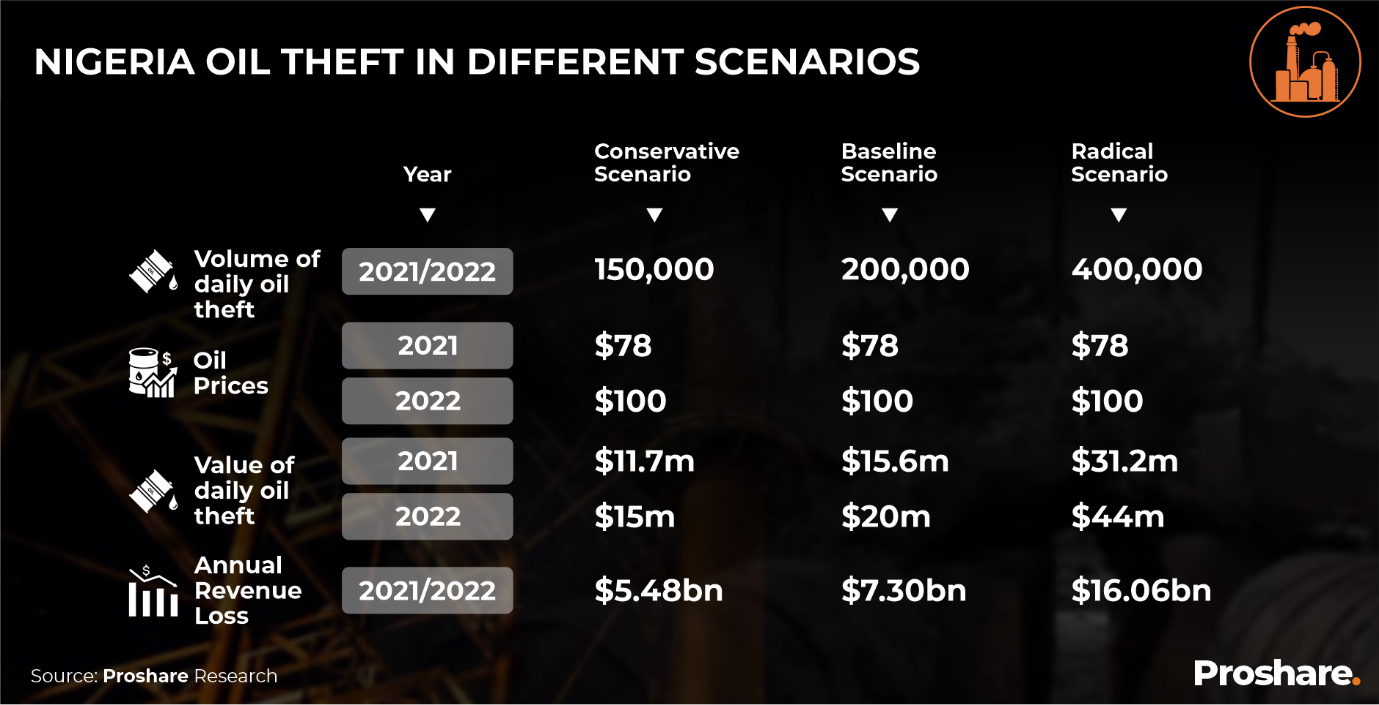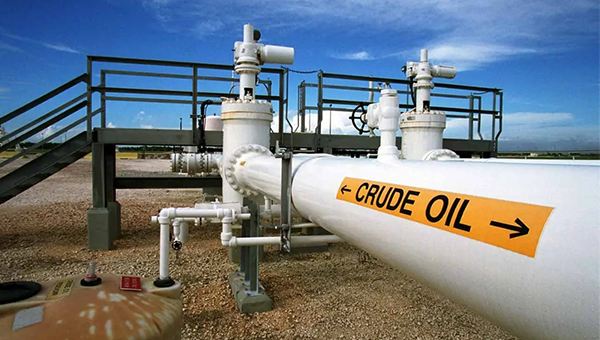Being an Analyst Note Issued by Proshare Research on August 29th, 2022
Analysts warn Inaction of Government Responsible for Oil Theft
There are indications that a major mobilization for a nationwide demonstration is ongoing among key unions in Nigeria's oil and gas industry to protect the large-scale oil theft in the country. While there have been differing figures on the actual volume of oil theft in the country, an established consensus is that it is an organized cartel with local and international collaborators, including security personnel and some so-called elites. Proshare analysts believe the underlining factor that had supported the spike in oil theft, as with other issues in the country, is the low importance given to data for accountability and transparency. There has consistently been a wide gap between the official oil production volume and the secondary sources reported by OPEC. There have also been reports of underreported crude volumes loaded at some terminals with no regulatory action on culprits. The lack of obvious punishment for previously arrested oil thieves incentivizes more theft (Proshare would soon publish its eight-month long investigative review of the sector in a report titled, "Anatomy of Nigeria's Crude Oil Theft: Understanding the Graft and Economic Implications").
Excerpt from the Report:
Analysts Fear Risks of Global Fertilizer Scarcity
Fertilizer scarcity has plagued many farmers this year since the war in Ukraine. Russia holds a good position in the international market for fertilizer export accounting for about 23% of ammonia exports, 14% of urea export, 10% of processed phosphate exports, and 21% of potash exports. Brazil, the 4th largest global fertilizer consumer (behind China, India, and the United States), imports 95% of its nitrogen fertilizer from Russia. It has been affected by reduced supply from Russia owing to logistics issues. Forced to look for fertilizer elsewhere, demand shifted to other nations. Dangote noted that he already had increased demand from brazil even before its launch. Other west African states have found it difficult to access fertilizer, and many farmers in Nigeria have complained about a lack of fertilizer supply. It has become a cause for concern as three major fertilizer producers, Dangote can supply 3MMT (million metric tons) of fertilizer, Indorama with a supply capacity of over 1.5MMT, and Notore, with a supply of 0.5MMT. The fertilizer scarcity globally could seriously impact food availability next year as we could witness a worse food crisis. In 2020, India stood as the highest importer of Urea fertilizer, a continued scarcity could have a severe impact on a nation hit by extreme weather conditions this year (see table 1 below).
Table 1: Exports and Imports of Fertilizer by country (2020)
Analysts dive into NGX previous week's performance
Analysts observed buying interest in the market as the Nigeria Exchange Limited (NGX) increased by 0.04% to close at 49,682.15 basis points against the +2.03% gain recorded to close at 49,661.87 basis points at the end of the previous trading session. In Naira terms, the NGX Market CAP recorded an increase of N10.94bn. Analysts believe investors are taking advantage of a market bearishness, entering the market on the low, and looking forward to a positive Q3 performance to improve their investment returns. Analysts observed an improvement in the NGXASI YTD in the previous week as good trade performance on Thursday and Friday brought the index up from +13.95% recorded at the close of the August 24, 2022 trading session to bring it to +16.31% at the close of 26TH August trading session (see chart 1 below).
Chart 1: Movement of NSEASI Index Points 22 AUG 2022- 26 AUG. 2022
ICT Contribution to GDP rises to 18.44%
The National Bureau of Statistics (NBS) data showed that the information and Information, Communication Technology (ICT) sector contributed 18.44% to real GDP in Q2 2022. The growth was higher than its contribution in Q2 2021, which recorded a 17.92% contribution. The Minister of Communication and Digital Economy, Isa Pantami, has said that the increasing contribution of the ICT sector to Nigeria's GDP was the result of the growing digital activities in the country. Analysts believe the high contribution of the ICT sector to GDP reflects the increasing activities of leading telecom companies. There is massive room for improvement. The government can do more to improve the ICT sector through a public-private partnership in developing hubs and providing grants or tax credits.
Disagreements Amongst Nations Hinder Global Fight Against Climate Change Observe Analysts
As the consequences of climate change become direr, there has been an intense and consistent fight against climate change. Over the past decade, global renewable energy consumption has grown exponentially at an average annual rate of 12.6%. Renewables were the only energy category that grew globally at double digits over the year and the past decade. This can be attributed to the formation of favorable policies and increased investment. However, several countries such as Japan, Norway, and the Philippines have fiercely opposed the International Energy Agency (IEA) recommendation in 2021 for all nations to halt oil and gas production and exploration immediately. The IEA claims that a full de-transition from fossil fuels is the major way to reach net-zero emissions by 2050 globally. However, analysts believed that there would be absolutely no production and exploration within the oil and gas sector in the foreseeable future. Thus, countries should strive to balance their energy mix by ensuring that a sizeable portion is sourced from renewables.
Analysts Watch as Singapore Disincentivize Investors from Crypto Trading
Despite warnings and measures in Singapore against cryptocurrency, Ravi Menon, managing director of the Monetary Authority of Singapore, noted that regulators would tighten their grip on cryptocurrencies. The Singaporean authorities insist that many investors are unaware of the risks associated with crypto trading. Analysts noted earlier in the year, the monetary authorities enacted a policy prohibiting crypto service providers from advertising their services to the general public.
Bitcoin has failed to break over the US$22,000 resistance level and began a new slide beneath the US$20,000 support level. Daily, Bitcoin dropped -1.18% of its value and traded at US$19,827.87, indicating a fall below the 100 hourly simple moving average, which bears appear to have prevailed. According to analysts, the bottom for Bitcoin has developed below the US$19,454.46 level, and other cryptocurrencies are currently consolidating for losses (see chart 2 below).
Chart 2: Bitcoin Price Movement
 Lagos, NG • GMT +1
Lagos, NG • GMT +1











 214 views
214 views





















 Sponsored Ad
Sponsored Ad
 Advertise with Us
Advertise with Us









